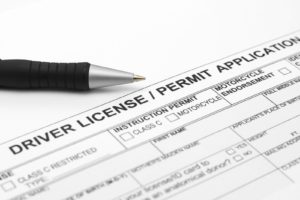In 2011, lawmakers updated Kansas DUI laws to incorporate numerous changes such as fine and fee increases, increased chemical test refusal penalties, and tougher chemical test failure penalties. The new DUI laws also allow for the possibility to obtain what some people call a “hardship license” after suspension. In truth, there is no “hardship license” in Kansas. What Kansas does offer is a limited restricted driving privilege in lieu of a suspension after a certain amount of the suspension period has passed.

This limited restricted license gives suspended drivers partial restoration of driving privileges for the purposes of getting to and from work, school or alcohol treatment programs. A DUI hardship license under the current law will be further restricted to only driving vehicles with an Ignition Interlock Device (IID.) So, after serving a certain number of days of your suspension, you can get a license to drive for work and school purposes as long as you are driving a car with an ignition interlock device.
The IID can be temperamental, expensive and very inconvenient. For instance, you will need to wait a few minutes for the IID to power up and configure. You will need to blow into the device and register a BAC reading of under 0.04 for the car to start. Roughly every 15 minutes of operation, the IID will require a “rolling test” in order to keep the vehicle running. Yet, for many charged and/or convicted with DWI, the IID restricted hardship license is still a better option than not being able to drive at all.
If approved by the Division of Vehicles (DOV), your restricted privileges will allow you to drive to and from work or school; to probation and drug/alcohol treatment meetings, and during a medical emergency as long as you are in a car equipped with an ignition interlock device.
KS “Hardship License” Requirements
Under the law, anyone who is suspended for 1 year as a result of a DUI occurrence is presumed eligible to apply for a restricted IID license. However, approval is not a guaranteed right. Some reasons for DOV denial of a hardship application include:
- You have a failure to appear on your record for a traffic citation;
- A conviction for failure to maintain driver liability insurance;
- Failure to file or maintain evidence of vehicle insurance with the Driver Control Bureau;
- Failure to comply with a child support order;
- Conviction for Driving While Suspended;
- Conviction for reckless driving;
- An out of state suspension, and
- Determination of Habitual Violator status.
A driver will also be refused if he or she has a suspension on their record for any prior action that has not been cleared. Generally, though, as long as you are not suspended for some other reason, you will be approved for the limited restricted license.
The wait time before you can apply for restricted privileges depends on why you were suspended. If you were suspended for a chemical test failure (i.e., failing a breath test) or a DUI conviction, you can apply for a restricted license after 45 days of the suspension have been served. If your suspension resulted from a chemical test refusal, you will have to wait 90 days into that suspension until you can apply.
Once approved for a limited restricted license, drivers must pay for the IID and drive with it for the remainder of their suspension, PLUS for an additional “restricted” period of from one to ten years. The additional IID restriction depends on the number of prior actions/convictions the driver had (if any) and for test failure, how high their BAC was.
